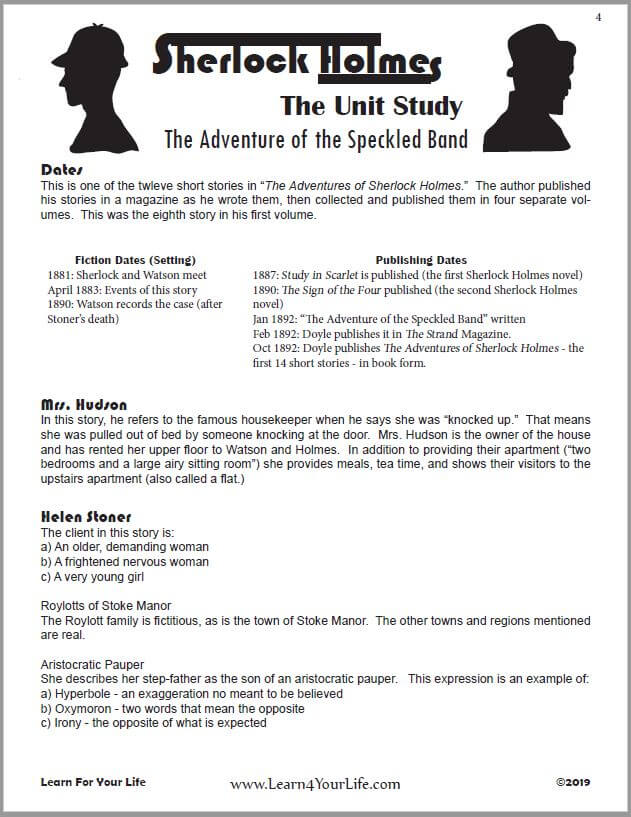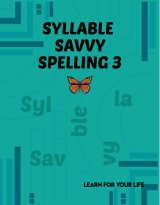Sherlock Holmes and Dr Watson
The relationship between Sherlock Holmes and Dr. Watson has been the subject of much interest since Arthur Conan Doyle's detective stories first appeared in the Victorian Era. What kept these two partners together?

Who Was Dr. Watson
When the first adventures started, Dr. Watson was a room-mate who shared the apartment at 221 B. Baker Street, London, with his new acquaintance, Sherlock Holmes.The two were introduced by a mutual acquaintance - a former high-school classmate of Watson's; and former college class-mate of Sherlock's. Since both needed living quarters but had to share the expense, the friend introduces the two and then disappears permanently from the scene.
The two do not hit it off immediately, though they converse and appear somewhat cordial. Dr. Watson has the inconvenience of being asked to leave the shared living-room when a variety of guests appear to speak to Holmes. The intrigue begins.
Of course, as we all know, Watson eventually becomes friends with the unsociable Holmes and begins to accompany him on some of his adventures. With time, he becomes an associate - never a full-fledged partner.
And of course, as all fans of the high aclaimed fictitious series know, Watson becomes the biographer who records the successful cases of the rising detective. A very effective literary technique, Sir Doyle!


Biography of Dr. John H. Watson
Throughout the 58 stories, Dr. Watson drops a few little nuggets about himself. This is what we read:- He is of Bohemian descent (as was Holmes.)
- He was a medical doctor (graduated 1878 from the University of London.)
- He served as a surgeon in the British Army in Afghanistan.
- He was seriously injured in the battle of Maiwand. Apparently he suffered a shattered shoulder bone, grazed subclavian army, leg & hip injury, then almost died of enteric fever.
- His health "irretrievably ruined" he was sent to England on a pension of one-half his normal salary.
- He had no relatives in England. The only mention of relations is a father and brother who are both dead. His brother was an alcoholic. No other family is mentioned.
- Prior to his injury he had traveled widely, including Europe, Afganistan, and India. One of his statements about "three continents" causes readers to surmise that his military travels also took him to Africa.
- His primary vice was gambling to which he was addicted - at least in his younger years.
- Eight years after meeting Holmes and being his roommate, he became engaged to Mary Morstan, one of Holmes' clients.
- His marriage was the major event of his life, and in the earliest set of stories he marked time by how long he had been married (approximately July 1888 - there are some discrepencies in the stories on dating and other details.)
- At the time of his marriage, he returned to medical practice in order to support himself and his wife. He purchased a practice from another physician.
- In the five to six years of his marriage, he continued to practice medicine but still occasionally was invited to accompany Holmes on a case.
- His first wife died of an unknown cause apparently in late 1893 or early 1894. They had no children.
- He became re-acquainted with Holmes in April 1894, after a three-year absence in which Holmes was believed to be dead.
- In August of 1894, he sold his medical practice (to a cousin of Holmes') and returned to 221 B. Baker as Holmes' partner.
- In 1904 he remarried. The name of his second wife or details about her are never disclosed. About this time he returned to medical practice and his time working with Holmes was diminshed.
- After Holme's retirement and withdrawal to the countryside, they saw each other even less. They did, however, have occasional weekend visits, demonstrating that their friendship outlasted their partnership.
- At the outset of World War I, in 1914, Watson rejoined the military as physician, thus ending the series in the same occupation from which we meet him at the outset.
- Watson's personality was quiet, humble, and unassuming. He was compassionate to those in need and loyal to his friend. In spite of these reticent qualities, he was an adventurous risk-taker as the analysis below spells out.
It's Elementary
Relationship between Holmes and Watson
Of course, at the very least, we know that the presence of Watson was a literary technique used by Doyle to build suspense in his story. Through the eyes of Watson, the reader was like a fly on the wall - watching Holmes, pondering the trail of evidence, and surprised when the solution was announced.But we may still ask, "Why Watson?"
Sure, the two became roommates and friends in the days when Watson was an invalid and Holmes just starting his unlikely career. Money was short for both. But certainly the successful Holmes could have found another associate than to take one of London's medical doctors out of practice to accompany him on his trips.
Body Guard
One of the obvious reasons Holmes depended on Watson was his usefulness as a marksman. He was, you remember, a military man recently back from the war when they met. Frequently, Holmes would casually request that Watson take a weapon as they left their apartment on Baker Street.In the Adventure of the Norwood Builder, Holmes remarked to Watson, "(There was) no prospect of danger, or I should not dream of stirring out without you."
Watson, of course, never bragged about his skills with a pistol, but often Holmes was depending on it.
Daredevil Swashbuckler
The popular notion of the round-waisted middle-aged biographer does not always coincide with that of an audacious adventurer...but he was. What else can account for the physician who so readily deserts his medical practice to dash around London and beyond with Holmes? Here was an ex-military man who revelled in danger just as his partner basked in problems of logic. He didn't flinch when the mission became dangerous, and even refused to leave when Holmes tried to send him away when assassins where tracking them down.Burglar Buddy
In several occasions Holmes used Watson as a co-burglar. In one case Watson objects at first, fearful of the repercussions Holmes would face as his career is ended in disgrace. When that didn't happen, they both became more bold about crossing thresholds illegally to solve their case.Cases of breaking and entering can be read in Charles Augustus Milverton, Disappearance of Lady Francis Carafax, Bruce Partington Plans, Wisteria Lodge.
Second Man
Watson was Holme's assistant. He carried things, caused distractions, hunted for information and helped in numerable ways.In the early years, Holmes also had the "Baker Street Irregulars," a group of young Arab street boys who helped him with miscellaneous tasks. In the later years, Holmes employed other adults as his assistants. But it is obvious, that Watson was the assistant he valued the highest.
Co-Investigator
Sometimes, as Holmes partner, Watson was often sent on a mission himself. This might be because Holmes was otherwise busy - with the same case or another one. It usually ended up with Watson being chastised for clues he overlooked.Nonetheless, while Holmes did have other assistants, none had the status and certainly none were entrusted with missions as Holmes was on several occasions. (Hound of Baskervilles, Solitary Cyclist, Disappearance of Lady Francis Carafax, Sussex Vampire)
Medical Detective
Watson never identified himself as a coroner, but the combination of his medical skills, military training, and detective skills would have been an assett to Sherlock. Murder was frequently the crime they set out to solve, so Watson's skills in this department would have been beneficial.Sounding Board
It is obvious that Holmes needed someone - and that someone was Watson - who he could discuss cases with. Too some extent it was a literary technique - Holmes giving the details to Watson as a train or carriage carried them to their destination. But in a realistic sense every detective needs to "think out loud" as they go over the details of a case to see if they have missed anything.Uninformed Follower
This is the opposite of the sounding board mentioned above. Sometimes Holmes did not need to ponder and discuss. He had an idea that he wanted to act on and didn't want to take the time to explain it. He could count on Watson to faithfully follow his instructions, even when Watson had no idea what was happening. That is trust in action. Of course, as a literary technique it also keeps the readers in the dark until the story teller decides to elucidate the plot. Watson's role works great both ways.Reader
Holmes was an avid reader of the all London newspapers and also kept up on crime nationally and internationally. But he couldn't read everything! In several cases, Watson knew details of a case in the newspaper before Sherlock. And a few times Sherlock assigns his pal the duty of scouring the agony columns for information. Bet at those times Watson was wishing he was back in medical practice again.Legal Witness
In at least two cases (Crooked Man, Dying Detective) Watson was specifically employed to be a legal witness who could testify in court. While criminal court was no doubt very familiar to the two partners, we never actually see them in it inside the stories of the canon.Companionship
Both men were fairly reserved, not particularly social or out-going, but were called upon to interact with the public constantly in their respective careers.It is probable the two found each other's company amicable. They could talk to each other when the situation demanded, but otherwise were perfectly content to be left to their own books and thoughts.
Was Their More?
In recent years, some have concluded that the two roommates were gay. For some, that seems a logical conclusion to two middle age bachelors rooming together for 20 years. After all, either could have afforded to buy a large country home once their careers became established.Instead, they seemed to prefer the locale of Baker Street, and the cooking and cleaning of the trusted Mrs. Hudson.
And what might we think of Watson's statements about "my intimate friend?" Certainly today we would conclude that any such reference was to a romantic relationship.
Keep in mind that this WAS Victorian England. The phrase "intimate friend" was closer to "good buddy" and indicated a close friendship compared to a casual acquaintance. At the same time, Doyle's adoring fan base would likely have had a different reaction if they read that phrase the same way we would today.
Watson's marriage and his desire to see his friend in a relationship might also suggest nothing else existed between the two.
Ultimately, it is a FICTION series, and as such the men's orientation was no more or less than what their creator made them to be. Since he is not here to ask, each reader is free to draw their own conclusion.
Friends Until the End
One of my favorite stories is The Last Bow. The two former associates are briefly reunited for a final case together. While waiting for their prisoner to be picked up by the authorities, Holmes and Watson converse quietly "for the last time."They became acquainted when they were unknown and financially struggling; now they are acclaimed and economically independent. They do not need each other. It was a friendship that outlasted everything else.
Buy Sherlock Holmes: The Unit Study


Student Guide AND Teacher's Answer Key Included
$2.99 Download - 183 pages
Eight of the most popular tales demonstrate how to investigate a detective story.
![]()
Sherlock Holmes Pages
A catalog of our pages on Sherlock Holmes.


About Our Site
Hands-On Learning































